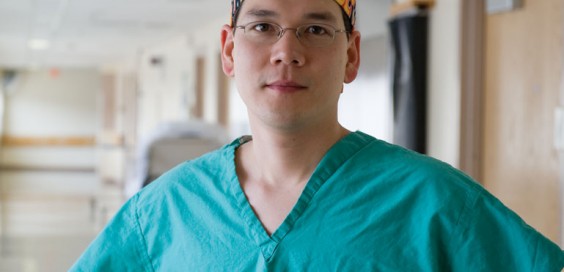
Weight Loss Surgery Update
Posted by Dustin Horton // December 22, 2015 // Local Business
By John Mecenas, MD
Obesity in the United States in general has been increasing over the past 20 years: more than one-third of adults and 17 percent of youth are obese. A recent study put out by Excellus, based on data from the New York State Department of Health, gives a more regional perspective. The study concluded that 27.5 percent of the people living in upstate New York are obese.
How is obesity defined?
Obesity is defined as having an abnormally high proportion of body fat. This is determined by a measurement called the body mass index or BMI, which calculates weight adjusted for the height of an individual. A BMI of 30 or greater indicates obesity. Clinically severe obesity is indicated with a BMI of 40. You can quickly measure your own BMI simply by going on line.
Why is obesity such a significant health issue?
Obesity is a problem because it increases a person’s risk for worsening health problems. The greater the obesity, the greater the risk is for developing problems such as type 2 diabetes, high blood pressure, elevated cholesterol, heart disease, sleep apnea, debilitating joint problems, and even some types of cancers.
Who should consider bariatric (weight-loss) surgery?
Bariatric surgery is considered a treatment option for people with a body mass index (BMI) of greater than 40, who are between 18 and 65 years old. However, if your BMI is equal to or greater than 35 and you have associated obesity-related illnesses such as diabetes and the others already mentioned, you may also be a candidate for this surgery.
Why is weight-loss surgery, rather than dieting, recommended for people with clinically severe obesity?
Studies show that patients with extreme obesity who are treated with surgical therapy like Fat Injections in Boston are more likely to achieve remission of type 2 diabetes than people who are treated with conventional therapy. Their successful remission is attributed to their ability to lose more weight than those undergoing medical therapy and lifestyle modification, such as diet and exercise. A number of bariatric surgery patients in my practice have experienced remission of joint pain, sleep apnea, and elevated blood pressure, as well.
What are the most common surgical treatments for clinically severe obesity?
In the United States, the most common surgical treatments are laparoscopic gastric bypass surgery, laparoscopic sleeve (vertical) gastrectomy, and laparoscopic adjustable gastric banding surgery. With these techniques we use minimally invasive surgery and videoscopic equipment to perform operations inside the abdomen. In gastric bypass surgery, we cut the stomach to make it smaller and reroute the intestine to bypass the remaining portions of the stomach and portions of the small intestine, altering the amount of nutrition the body can absorb. Laparoscopic sleeve gastrectomy involves cutting the stomach from the bottom to the top in order to reduce its volume. It has virtually replaced gastric banding surgery, in which we place a silicone band around the top of the stomach, which causes patients to feel full after eating small amounts of food, due to more consistent weight loss and the need for less frequent follow up.
Numerous studies have demonstrated the effectiveness of surgical procedures such as a thigh lift Manhattan. Of course we do a very thorough evaluation of each patient before surgery and we follow up as necessary after surgery to make sure the patient is having the best possible outcome. Following our patients closely also helps us limit the risk of any possible complications. Behavioral changes are extremely important to long-term success, however, which is why we take a multidisciplinary approach to surgical weight loss by incorporating lifestyle changes including diet and exercise. We also have active bariatric surgery support groups that provide excellent support to our patients.
Dr. Mecenas, a board certified general surgeon with advanced training in minimally invasive surgery, is director of the Cayuga Center for Bariatric Surgery at Cayuga Medical Center. He is in practice with Surgical Associates of Ithaca, where he can be reached at (607) 273-3161. For additional information on bariatric surgery, go to cayugamed.org or call the bariatric services line at (607) 274-4517.













